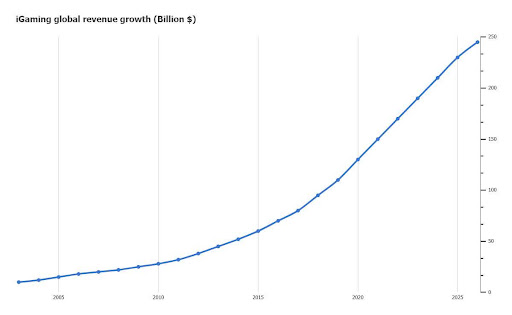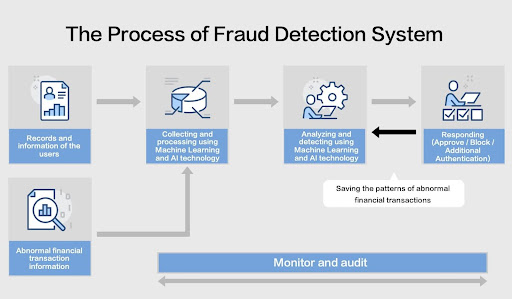
White Label Casinos: Shortcut to Market or Long-Term Liability?
With the huge annual growth rate of about 11%, the iGaming space is attracting new entrepreneurs and investors. This influx of new players has consequently given rise to products that shorten their time to market. After all, it’s not easy to develop and operate a casino. Operators like Bangladesh Online Casino have a lot to keep track of – such as compliance, regulation, technical considerations, cybersecurity, payment processing – the list goes on.
To solve these barriers to entry, iGaming industry experts have come up with what to many fledgling operators is a godsend – white label casinos. These are an all-in-one product to launch you to market as quickly as possible. Exciting as it may sound, where there is opportunity, there is concern. A lot of people are worried about sustainability. We’ve weighed the pros and cons and have put together an analysis with a final verdict at the end.

সূচিপত্রঃ
What You Get in a White Label Provider
You may already be familiar with the term ‘white label’. It originates from the retail space, where white label products consist of full, finished, branding-free products right out of the box. Instead, companies import and resell these products with their own branding, rendering them practically their own.
You can look at it like “renting” a fully fleshed-out business. Let’s look at the core components of it:
- Software: Your white label casino will usually come with visual (front-end) and functional (back-end) software. This includes everything from the site’s visuals, integrated games, user account functionality, payment integration, and more. This is also the biggest reason to go for a white label provider. Software is the most technical, difficult, and expensive aspect to build from scratch.
- Games collection: iGaming sites generally offer anywhere from a few dozen to a few thousand games. These can be hosted locally on the site, or integrated from other servers. Usually, white label casinos will offer a sea of integrated games across dozens of genres. Some white label providers will tailor for a specific genre.
- Payment systems: White label providers will usually give you a product with a complete payment gateway supporting dozens of processors. Expect anything from cards, e-wallets such as PayPal or Stripe, and commonly cryptocurrencies, such as Bitcoin, Ethereum, Dogecoin, and other popular altcoins. These come with fraud detection and prevention systems.
- Licensing: White labelling comes with licensing for games, but much more importantly, you can find providers that outright give you the necessary licensing to operate the casino itself in a certain jurisdiction.
- Data analytics: Most providers offer some degree of data storage, analytics, marketing integrations, and CRM. This eases affairs surrounding customer feedback and marketing.
- Security: Last but certainly not least, the provider handles security under professional standards – from payment security, to encryption, DDoS protection, patching software exploits, and more. They also work to constantly improve their product to meet all necessary regulations, which can be viewed as a form of business security.
How to Choose a White Label Provider
Once you get going with your white label solution, there will be some startup fees which go towards customizing the platform for your business. Once you cover the startup fees you will receive a complete platform with your own branding, identity, and upon request, a specific selection of games (a portfolio). Before you get to that point, however, you will need to decide which provider you’d like to go with and what level of features you’ll need.
When the agreement is signed, the provider will customize and host their platform branded with your own domain, visuals, branding, game portfolio, and more. You will be given access, and from this moment, it’s practically your own to run. Usually, the provider will handle customer support and you will operate the business.
Payment Models
How much you pay depends on how much you need taken care of for you and what your preferences are. The setup fee to launch the casino ranges typically from 50,000 to 200,000 USD. Depending on your agreement, you may pay:
- A flat fee per month in a turn-key solution. In this case, you get to keep all the profits, but the monthly fee is quite steep – in the thousands of dollars per month.
- Revenue sharing model in which you’d have to fork over around 10-16% of your GGR.
Decision Factors
Other considerations are:
-
which markets you gain a license to operate in via the solution;
- game library diversity;
- payment processing options provided;
- whether they handle KYC and fraud prevention;
- design freedom;
- how much they can handle for you;
- bonuses and CRM tools;
- reporting and back office tools;
- maintenance;
- security;
- scalability;
- contract length and exit clauses.
Advantages of White Label Casinos
Here are the main upsides.
Low Entry Barrier
The crucial advantage is a dramatically lower barrier to entry. Starting an online casino is tremendously complicated and expensive. The programming costs can range from $20,000 to hundreds of thousands. The licensing will cost at least a few thousand dollars as well. The development will usually take at least a few months or up to a year.
Scalability
Since the entire architecture is managed by the provider, including hosting and customer support, it’s very easy to focus exclusively on marketing and scale the business without having to worry about server or customer bottlenecks.
Risk Mitigation
Another advantage worth noting is addressing financial and legal risk. It is significantly cheaper to set the business up and test the waters, but it’s also safer in terms of licensing and regulation. The provider handles the regulatory management, and the client only needs to worry about the legality of their own business.
Downsides of White Label Casinos
The downsides are what make or break the decision to go with white label, and here are the most important ones.
Limited Control
It’s no surprise that, given a ready platform out of the box, you will not have complete control over it. Changing code, integrations, systems, databases, or anything significant in the front or back end of the platform will usually be severely restricted. Changes are also usually possible, but only through the provider and may be subject to fees.
Dependence
Like the first point, there is a complete dependence on the provider. If something happens to the provider, your business is impacted, from short technical outages to financial failure or even bankruptcy. As mentioned in the previous point, anything as simple as server issues or bugs can turn into bigger issues if the provider is unresponsive.
Revenue Cut
Having to give away thousands per month or 20-60% of your revenue is a serious downside. Even with all the listed benefits, this means your marketing, SEO, sales, retention, and other efforts will only yield you half the benefits.
Should You Get a White Label Solution?
So, are white label models a good shortcut? How sustainable are they long-term? The answer may be surprisingly simple. If you don’t have the startup capital for your own private casino, which we estimated at $20,000 for a simple one, or up to 7 figures for something world-class, you don’t have many alternatives. White label is a fantastic opportunity in this regard.
In the case of serious companies, white labels are a multimillion-dollar business. While something disruptive may happen to them, they have the capital, experience, and resources to handle it. A small iGaming startup doesn’t. You could encounter a service outage, a backend or support bottleneck, or other problems from time to time, but there is a team working on a fix.
Lastly, if your contract stipulates you own the rights to your branding, logo, and domain, you can always leave the provider, invest some capital, and build yourself a brand new platform without wasting your marketing, branding, and SEO efforts. If you’re not locked to a provider forever, then what is there to lose?
Final Thoughts
White label casinos are a completely viable option for entering the iGaming market, and do not present a long-term liability if you do your research, select a trustworthy provider, and understand the agreement. Every business model has risks, with white label model risks being manageable and offset by valuable upsides. The exception is if you have some high starting capital and experience, where going to market would provide a higher degree of autonomy and revenue.






